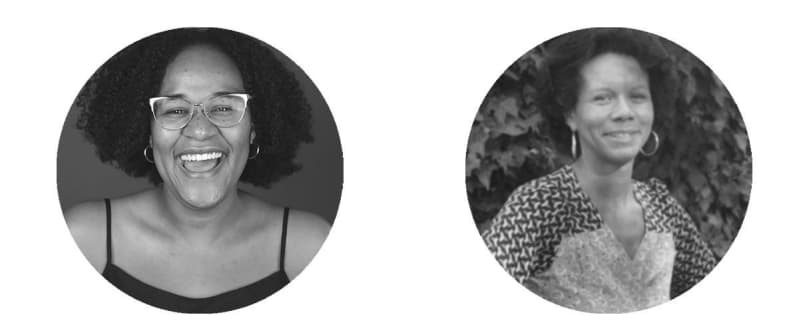The Refocus Project: Year One:
On "Remembrance" by Kathleen Collins.
Posted on: April 7, 2021
There’s this Carrie Mae Weems photograph I love called “Moody Blue Girl.” In it, a young girl sits against the siding of a house. She’s in profile, an afro puff on top of her head. Her expression is resigned and there’s a blue tint over the photo that makes her look drained. When I look at the photo, I think of one of my favorite moody women: Solange Knowles. When she dropped A Seat at the Table and I heard her whisper-sing, “I’m gonna look for my body, yeah / I’ll be back real soon” in the song “Weary,” a pang of recognition pierced me in the chest.
I was a moody kid. Easily prone to spells of heavy sadness, I’d often cry for no reason (or was it every reason?). The constant refrain in my family was that I was too sensitive. My siblings would sing this made-up song whenever one of my moods hit: “Emooooooo-tional, baby! Why arrrrrrrrrrre, you so blue, baby?” Those are the only lyrics and they repeated on a loop. It was pretty catchy.
I hated the song, mostly because I hated that I couldn’t answer the question in it. “Why are you so blue?” I didn’t know. It was like there was something about my skin that was too permeable, that let in too much and let it hit me too hard. I wanted nothing more than to take a break from my body—to find a less porous version.
Last spring, when the whole world fell apart, I started reading Notes from A Black Woman’s Diary, a collection of Kathleen Collins’ work and diary entries published posthumously by her daughter Nina. I was immediately taken with Remembrance, a one-act play about a woman who goes looking for God. The opening stage direction reads:
| (The WOMAN is already onstage when the play opens. One is immediately struck by a fragile quality about her, as of one who finds daily life difficult, almost unbearable […] she is preoccupied, and her preoccupations, since they render her out of synch with everyday life, should give a disjointed feeling to the way we experience her.) |
Later in the play, The Woman shows us how she steals away into her bathroom to locate herself “apart from other things…from kitchen, house, garden, street, Robbie, Sammy, Joe, the everyday zombie me…” She makes an altar and starts to flick different parts of her body until her entire body is trembling—exorcising herself of everyone and everything in her life so she can find herself. Find the version of her body that is not tied to being a mother or a wife or a dancer or any other identifier.
I re-read the play at least three times in that first sitting, trying to parse out why I was so obsessed with this woman. Eventually, it hit me: I knew her—this moody, blue woman. I knew her because I’d spent the last few years trying to purge variations of her from my own plays.
Blue women show up in most of my work and their bodies act out just like The Woman’s in Remembrance. They leak. They jerk around at odd angles. They spasm and roil and sway dangerously on the edges of things. I’m always a little ashamed of them because it feels like they’re revealing something ugly—a weakness that’s supposed to stay hidden.
Reading Remembrance made me interrogate that shame. The Woman in Remembrance is aware of us, the audience, the entire time. Collins lets us into The Woman’s mind as she tries to look for her body. There’s no shying away from or obfuscating her blueness—she wants us to see it. I started wondering what might happen if I stopped being ashamed of these women in my plays. What might be able to emerge if I followed Collins’ lead and leaned into their blueness instead of away from it?
My favorite part of the play comes when The Woman finishes her flicking and sits in silence:
| (When she finally speaks, it’s to herself: the self she comes here to find.) |
| THE WOMAN: | Hi. How are you…(self-conscious) I never know what to call you. I know that you’re me, but I don’t want to get you confused with the everyday zombie me. I come in here to discard her and find you, who listens to God… |
This part cracks me open. It doesn’t last long. Eventually she goes back to whirling around her apartment, being a mom and a wife and a zombie. But in this one still moment, this moody, black woman finds herself. She takes her time. She finds her body and, instead of magically becoming un-blue, she lets her body weep freely.
| “I’m gonna look for my body, yeah / I’ll be back real soon” |
I used to think this meant the body you’d find was the better, lighter, version of you. The one that’s not so sensitive. Not so permeable. But maybe that’s too simplistic. Maybe the version you find is just the one that meets you in the stillness.
I don’t know. I’ll figure it out with all my moody, blue women. Be back soon. ♦
VIVIAN J.O. BARNES is a playwright from Virginia. Her work has been developed with Actors Theatre of Louisville, Montana Repertory Theatre, Clubbed Thumb, and Ojai Playwrights Conference. She is currently a Lark Venturous Fellow and a third-year MFA playwright at UC San Diego. Her play Duchess! Duchess! Duchess! is currently streaming virtually through Steppenwolf NOW.
KATHLEEN COLLINS (1942 - 1988) was a playwright, poet, and filmmaker. Others works include the play In the Midnight Hour (1981), and the first feature length film directed by an African-American woman, Losing Ground (1982).
Photo of Kathleen Collins: kathleencollins.org

